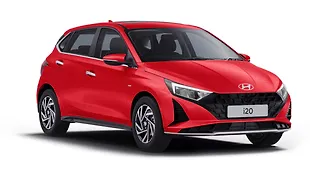Traffic signal
It’s a hot summer afternoon. Sweat beads tickling down your face. Your fingers impatiently drumming on your car’s steering wheel. Clutch pressed, the first gear is slotted in place. Your eyes anxiously fixed at an elevated structure on top of a pole at the corner of the road. And then, something blinks on top of the pole. There is a change of colour. You heave a sigh of relief and release the clutch and you are on your way across the traffic signal.
Most of you reading this would have been through the above written scenario. It has become a part of our daily lives. It’s something that we face so very often in our daily commute. The three colours on the traffic lights are arguably some of the most significant in modern day motoring. Significant, to say the least, but there are many of us who disregard them completely.
I have lived a major portion of my life in Chennai. And thanks to my father’s job, I have had the pleasure of going to some of the other major cities in our country. Mumbai, Kolkata, Bangalore, Lucknow and Kochi to name a few. As they say, India is a vastly diverse country. And so, all the cities that I have mentioned here are equally diverse. But there was one common factor. The on-road behaviour left much to be desired in all these cities.
Of course, in a comparative study some cities would score better than the others. But the truth is that there is some serious lack of discipline in the way we drive in this country.
There has been so much talk about the economic boom, the increase in the buying power of the middle class, the number of professionals that we manage to churn out every year… But while all this is good and is leading the way to a more enlightened and dynamic Indian public, there are still some things which we take for granted. Things that we have not made an effort to change. The on-road behaviour belongs to that category.
The other day while I was waiting at a busy signal in Chennai, there was this person in a beautiful Honda Accord, exuding a very ‘executive’ look, alongside me. When the digital timer above the traffic signal reached 10 and began counting down to 0, this person began to slowly inch forward and he kept doing that till he almost hit a last minute intersection passer. By the time the lights had turned green he had disappeared out of sight.
Why? Why in the world would somebody do that? I just cannot make up my mind to believe that somebody, in an effort to make up 10 seconds, would risk the possibility of an accident.
This kind of behaviour is very common nowadays. Mostly you would find that by the time the timer has reached 0, the first row of vehicles waiting at the signal would have already inched their way towards the other end and then they speed off as if they were in a drag race.
I was in Lucknow recently. And believe it or not, this city was the inspiration for me in writing this. Even though I have felt that the on-road behaviour in our cities is bad, it was Lucknow which made me realise that I hadn’t seen anything before this and that things can actually be worse.
Seriously, apart from maybe one or two signals in the main city, every other signal is treated by people as if they are some multi-coloured lamps put up for those grand celebrations. The lights are absolutely irrelevant. I was aghast when I first saw it. There were buses, trucks, cars, bikes, rickshaws and people, all crossing from every possible direction. It was as if the circle and the traffic signal were more of a hindrance to the movement of these people rather than them being enablers of their orderly and free movement. My friends told me that some of the other cities are even worse. I can’t imagine how that would be.
On similar lines, it is also common to disrespect the signal if found that there are no policemen around. This is supposedly being looked up as a macho behaviour by the current day youth. Like I said earlier, I just don’t see the point in this activity of breaking the rules.
There have been instances when people crossing the road on the zebra line were given scowls and were even abused by passing motorists. Like every other country, ours too gives the first preference to pedestrians when crossing the road and these rules have been taught to us right in primary school. However, the sad fact is that majority of our drivers are either ignorant or they simply don’t know. One of my friends had a funny experience during his first visit to the US. He wanted to cross a road and he was gingerly waiting at the side waiting for a gap in the traffic when a huge bus suddenly came to a halt beside him. He was wondering if he had done something wrong, but then he experienced that he was rather not used to,the bus driver was waving his hand and asking him to cross the road. This incident might seem to be something surprising for us but it is the actual procedure that that driver has followed. It is only the practice that we have got so used to in India that is making us think otherwise.
The problem lies in the thinking. We have grown up watching others behave the same way on the road and we are now looking at it as if that is the ONLY way to behave at a signal. It is not that we lack the discipline. We have the self-discipline and life skills to lead a very efficient life. Why can’t we incorporate the same thing into our behaviour as well? In the developed countries, when rules are made, people have no second thoughts about following them. But sadly in our country, we tend to look at exceptions to the rule or loopholes or blindly act as if the rules are made for every other person other than us.
The way out of this problem?It’s simple – Awareness.
Spread the awareness. Get it clear that RULES are RULES and that there are no plus or minuses to it. The following are some basic steps which I believe, if we follow, will make our roads much more secure.
•The STOP line is for you to stop behind it and not 10 feet after.
•Respect the traffic light. Stop if the light is amber and it is about to change to red rather than making a desperate dash to get to the other side.
•The Zebra Crossing is for the pedestrians to cross the road and for the vehicles to stop and it is not the other way around.
•Consider the other vehicles on the road. Understand that even they have as much right to be on that road as you do.
•One must move his vehicle only after the timer has reached zero and/or the lights have turned green and not inch his way across the signal after having verified that there are no policemen in sight.
•And most importantly, drive with common sense.
This list is nowhere near exhaustive. It is up to the individual to exercise his discipline in other areas of life also on to the road.
I could have presented a different view by saying that hefty fines can be levied on erroneous drivers so that it might set up an example to others. But I think it has to be inculcated in each and every person. It has to be driven by each individual.
It is a challenging task, no doubt about that but it is a challenge worth taking, because at the end of this task, we will be able to reduce the number of accidents and mishaps which in turn would lead to making our roads safer and better. Let us strive to make it happen.
![Datsun GO [2014-2018] Image Datsun GO [2014-2018] Image](https://imgd.aeplcdn.com/272x153/cw/ec/36449/Datsun-GO-Exterior-138001.jpg?wm=1&q=80)
![Datsun GO [2014-2018] Exterior Datsun GO [2014-2018] Exterior](https://imgd.aeplcdn.com/199x112/cw/ec/10883/Datsun-GO-Exterior-119166.jpg?wm=0&q=80)
![Datsun GO [2014-2018] Front View Datsun GO [2014-2018] Front View](https://imgd.aeplcdn.com/199x112/ec/FF/11/12589/img/m/Datsun-GO-Front-view-25428_l.jpg?v=201711021421&q=80)
![Datsun GO [2014-2018] Exterior Datsun GO [2014-2018] Exterior](https://imgd.aeplcdn.com/199x112/cw/ec/36446/Datsun-GO-Exterior-137931.jpg?wm=1&q=80)
![Datsun GO [2014-2018] Steering Wheel Datsun GO [2014-2018] Steering Wheel](https://imgd.aeplcdn.com/199x112/ec/FF/11/12589/img/l/Datsun-GO-Steering-Wheel-25441.jpg?v=201711021421&q=80)
![Datsun GO [2014-2018] Music System Datsun GO [2014-2018] Music System](https://imgd.aeplcdn.com/468x263/cw/ec/36446/Datsun-GO-Music-System-137949.jpg?wm=1&q=80)























